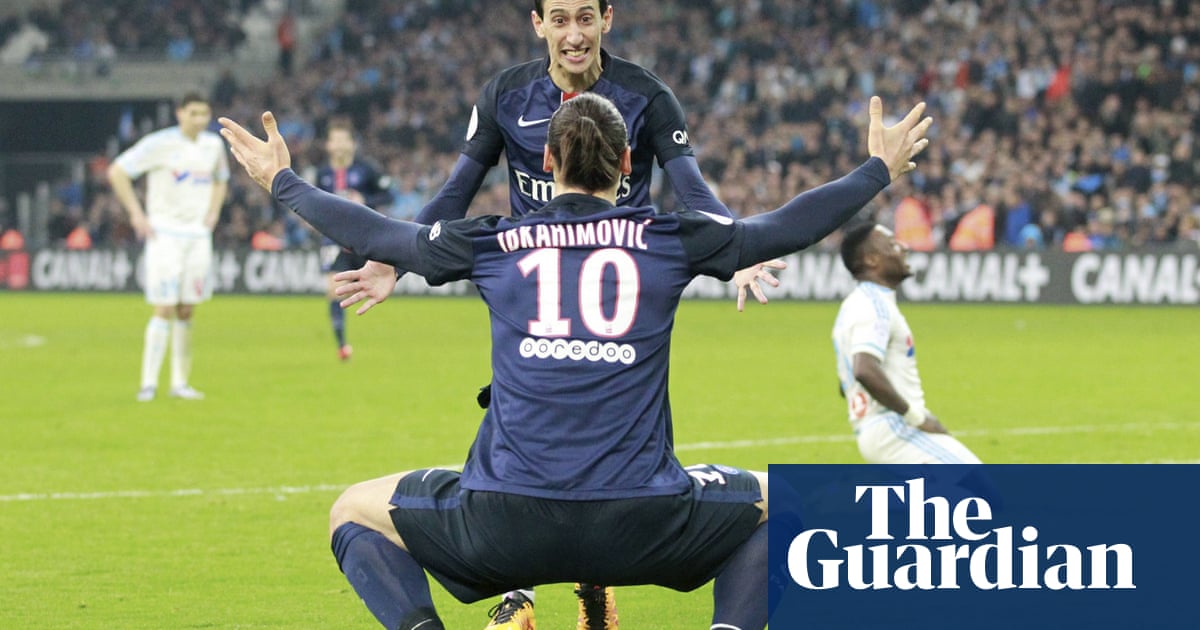
The Nations League drags on, a good idea cheapened by circumstances as weary fans and weary journalists try to summon the will to care about weary players playing out what numerous managers have said they’re treating as World Cup preparation, wearily. Who can summon the energy to care about who might be England’s third-choice right-back? Who can be bothered to watch another VAR replay of two feet coming together? If a player wonders whether yet another forward surge to block a passing lane is worth it, who can blame him?
It’s getting so bad that even adding up the combined age of Belgium’s centre-backs is beginning to lose its lustre. It’s not just that the compression of the calendar because of Covid, the November World Cup and greed has left everybody fatigued. It’s that the Nations League is eating into the most wonderful time of the year: the transfer window.
The modern obsession with transfers is baffling, but what has become apparent is that a not insignificant subsection of football culture – journalists, fans and probably directors too – seems almost to prefer the market to the game. At the beginning of September and February each year there are fevered debates about who “won the window”, as though trading players were an end in itself and not a means to winning matches.
There’s a form of utopian world-building to it, heightened surely by the impact of computer management simulations. Just as the draw can often seem the best part of a tournament, as we imagine contests between the purest form of each side, unsullied by injury or form, so a player is at his most perfect when he signs.
We ponder how this new centre‑forward at his best will link up with his teammates, before it becomes apparent that he has never really recovered from that calf problem, he doesn’t get on with the left-back, the right-winger’s service is not quite right for him, he doesn’t quite work within the coach’s philosophy and it was only his partnership with the No 10 at the previous club that made him look good.
There’s also a sense of status: if you’re buying big players for big fees, that means you must be a big club. Signings become a goal in themselves, transfers for transfers’ sake. That’s probably linked to the pleasure many seem to take in shopping. Everybody wants to see ambition expressed through spending; everybody wants more money, more purchases, and very few stop to ask where the money is coming from. In modern society, acquisition itself becomes a meaningful pursuit and if you’re a billionaire probably even more so: you may have the bigger yacht, but I have the more expensive holding midfielder.
For those clubs with vast external sources of revenue, who are not reliant on TV deals and fans through the gate, big signings have the added bonus of inflating the market, taking the best players out of the range of more traditionally funded clubs.
But there is an oddity here. While the richest clubs are the most successful clubs (as countless columns lamenting the financial imbalances of modern football have made clear), the biggest signings rarely work out. Look at a list of the most expensive transfers in history (and yes, there are quibbles about exchange rates and exactly which bonus fees to include).
Of the top 20, how many could be said to be a clear success from a footballing point of view? Some – João Félix, Jack Grealish, Jadon Sancho – are still young enough that they may become hits. Others have a complex story: Gareth Bale won five Champions Leagues with Real Madrid and produced some extraordinary performances, but his time there has ended in three years of acrimony. Only three – Cristiano Ronaldo to Madrid, Virgil van Dijk to Liverpool and Luis Suárez to Barcelona – have been definitive successes.
Neymar or Kylian Mbappé, the two most expensive transfers in history, may have helped spread the Paris Saint-Germain brand – which is an admittedly large part of the Qatari project – and they have certainly accelerated the inflationary spiral, but they have not brought the Champions League that, given the Ligue 1 title in effect comes as standard, is the only way the club can really judge sporting success.
PSG’s capture of Neymar led directly to Barcelona buying the third-biggest signing, Philippe Coutinho, the main beneficiaries of which were Liverpool, who used the fee to buy Van Dijk and Alisson. Coutinho’s most memorable game while under contract at Barça was scoring two goals against them while on loan at Bayern in an 8-2 humiliation. Barça, whose recent transfer record is as bad as anybody’s, are also responsible for the signings at numbers five and joint-eighth on the list: Antoine Griezmann, whom they are looking to offload at a significant loss, and Ousmane Dembélé, with whom they are about to part company.
Romelu Lukaku represents three of the top 21 most expensive transfers. The least costly of those, his move from Manchester United to Internazionale, is the only success. His switch from Everton to United was at best net neutral. He was sold for a small loss after two uninspiring years, but his £97.5m move to Chelsea from Inter last summer has been a baffling failure, his Christmas interview criticising Thomas Tuchel’s tactics seemingly causing an irreparable breakdown in their relationship. Then there is Paul Pogba, whose role seems essentially to be to shuttle between Manchester and Turin at great expense to United.
Of the top 20, eight can probably be classed as clear failures in footballing terms. Which means what, exactly? Certainly not that cash is unimportant or that big transfers are doomed to fail. Rather, that money is most efficiently spent from a football point of view on rising stars who fit an overarching philosophy than on off-the-shelf celebrity, players who, whether because they are already formed or because of their egos, struggle to adapt to a new environment.
But also that a lot of money is now spent for commercial as much as footballing reasons. The biggest deals rarely bring success on the pitch.












